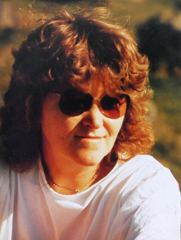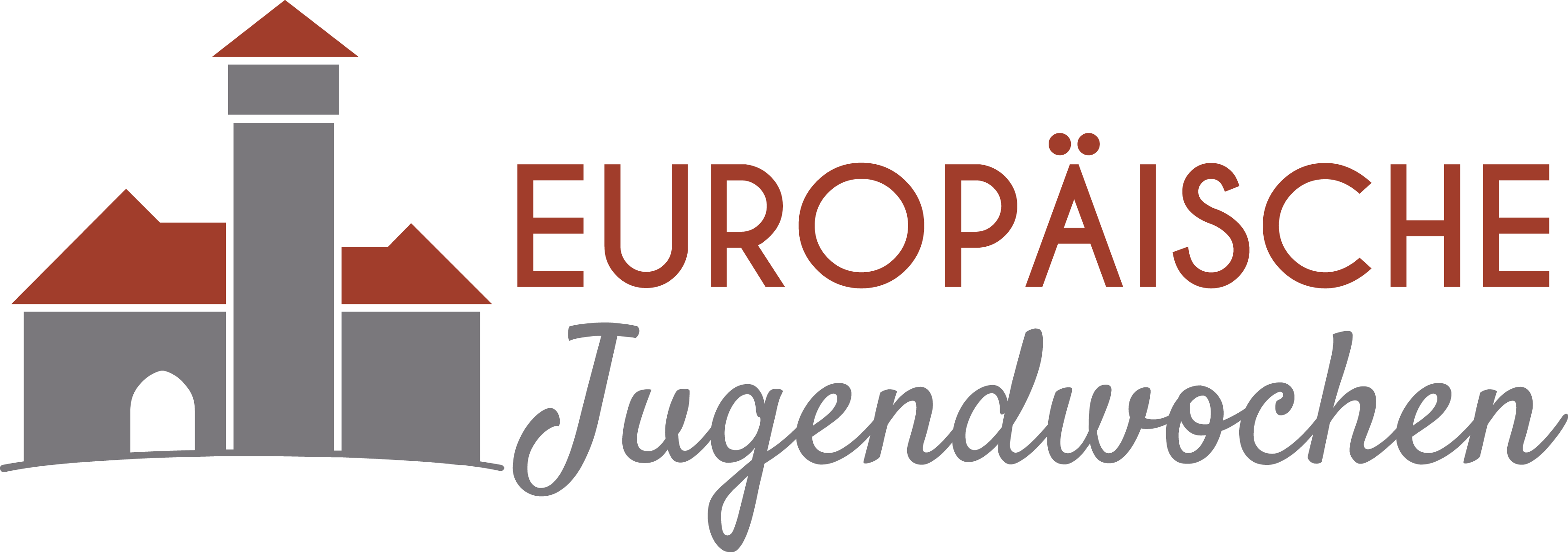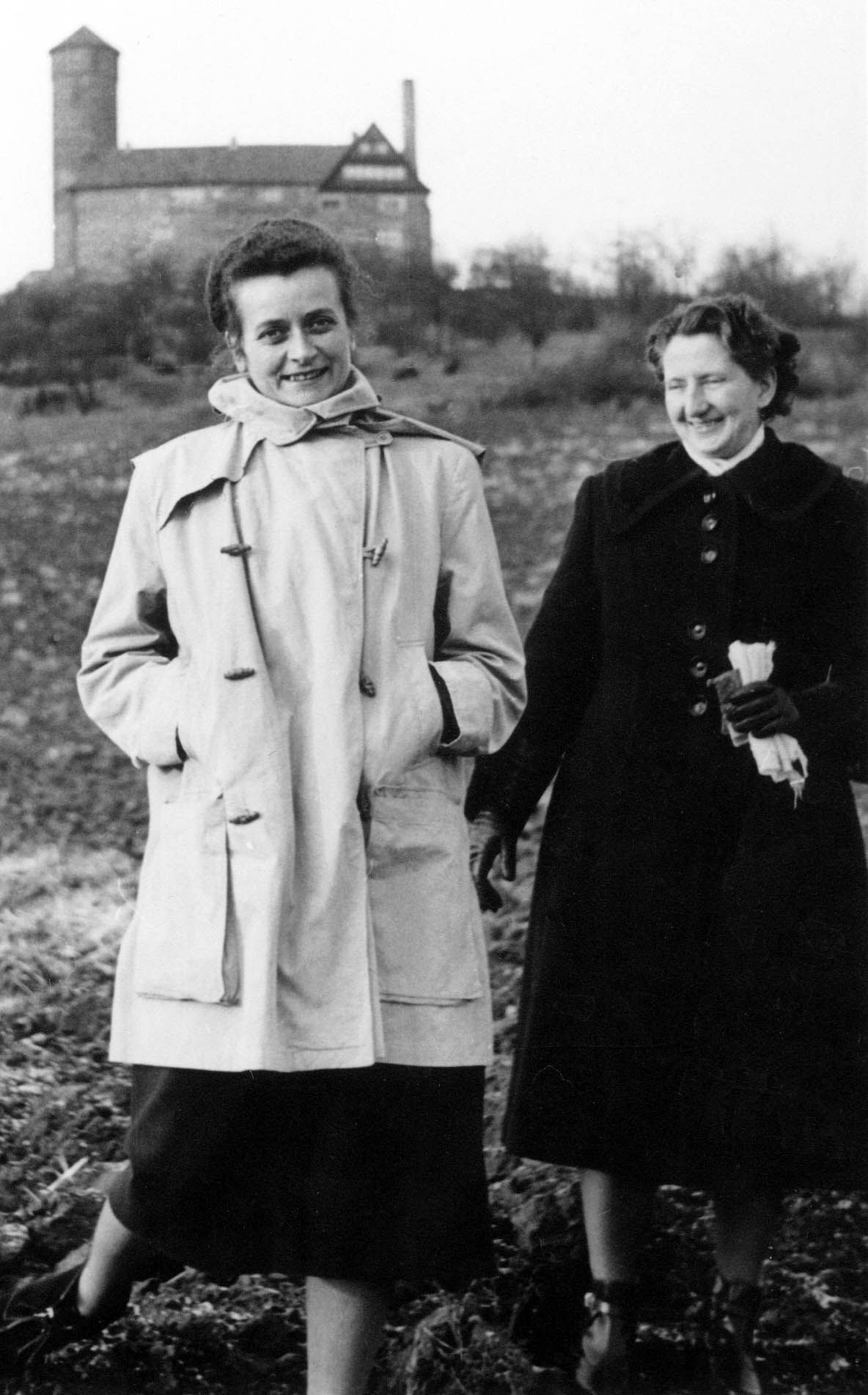→Participants of the European Youth Weeks since 1953

The European Youth Week was founded in 1953 by Hella Heynmöller under the impact of the terrible, inhumane World War II.
To ensure that this never happens again, the youth of Europe should know each other, respect and understand each other. As a place of European encounter, the founder has chosen the symbolic castle Ludwigstein. It is located directly on the former inner German border and was and is a center of the German youth movement. Here, young people from all over Europe should communicate with each other by singing, playing music and dancing and talking to each other. Thus the way led over the folk dance groups of the European countries.
In 1953 the first meeting took place. Altogether there were 60 participants: a folk dance group from Austria, single participants from Sweden, Denmark, Switzerland and the Federal Republic. The meeting was sponsored by the association Jugendburg Ludwigstein. In 1971, Hella Heynmöller’s services as an active European were honored with the presentation of the Robert Schumann Medal.
→[A report by Hella Heynmöller on the first decades of the European Youth Weeks]

From 1962 to 1984, Ward de Beer sensitively conducted the choral and orchestral work of the European Weeks. It is thanks to him that in addition to the folk dance singing and the instrumental music were pillars supporting. His successor was Uwe Henkhaus , who led the choir and singing together until 2004. The following choral and orchestral conductors will continue their work, each with its own focus.
In 1981, it broke away from the Association Jugendburg Ludwigstein and founded the working group European Youth Weeks Burg Ludwigstein e.V .. In 1984, Hella Heynmöller honorary chairman of the association, 1986 she received the Federal Cross of Merit. At the age of 75 she died on 6.2.1988.
In 1984, the General Assembly elected Hartmut Reiße as the new 1st Chairman, who led the association until 2002 and is now Honorary Chairman. His successors were Norbert Gorldt , from 2008 Michael Göbel .
→ [“A Personal Experience Report on 43 European Youth Weeks” by Hartmut Reiße (Festschrift zum 50. Eurowoche 2006)]
Initially, funding for the European Youth Weeks was mainly from public funds, supplemented by private sponsors. In the years 1975, 1977, 1981, 2011 and 2014, the meetings unfortunately had to be canceled because the necessary money could not be raised. Currently, the association is no longer publicly funded.
The largest contribution to the financing of the Euro Weeks is borne by the club members themselves. Since 1983, the working group annually organized an Easter egg market (at the beginning of the castle, later in Witzenhausen) and since 1985, an Advent market on the Ludwigstein. The proceeds will be used to finance the Euro Weeks.

A great innovation for the club life was the foundation of the club folklore group “The Ludwigsteiner” by Fritz Lenz in the fall of 1990, which has been involved since 1991 as a German representation at the Euro Weeks. Ever since the first weeks of youth there have been regular groups from Eastern Europe – ia. from Poland, the former Czechoslovakia, Bulgaria, Romania, Hungary – guests at the castle. But only shortly after the disappearance of the inner German border in 1990 and 1991, the first East German groups were guests. Of course, since the reunification there have also come groups from the newly formed states of the former Eastern Bloc: Belarus, Ukraine, Latvia and the former Yugoslav republic of Macedonia.

In 1993-94, two people died in quick succession who had a decisive influence on the European Youth Weeks: Fritz Lenz on 6 July 1993 and Renate Vigelahn on 26 February 1994. Both were for many years deputies to Hartmut Reiße and the main initiators and organizers of meetings and markets.
Over the course of time, the European Youth Week has continued to open up beyond the circle of participants to the public in the Werra-Meißner district. So there was e.g. performances at the German Hiking Day in Eschwege in 1987, in 1990 on the Hanstein Castle, since 1993 in Großalmerode-Trubenhausen and many Sundays in the surrounding villages. The opening events on the market place in Witzenhausen and the performances in Heiligenstadt (since 1996) and still on the open-air stage in Fürstenhagen (since 1985) have tradition.
In 2006 we celebrated proudly the 50th European Youth Week, in 2018 it will be the 60th! 60 euro weeks, which also means that about 300 folklore groups participated in this time with about 10,000 participants.






